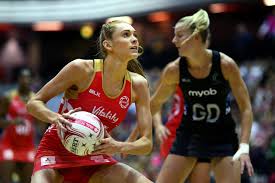
The health benefits are much discussed, but have you ever considered that Tai Chi & Qi Gong can have benefits for sport? Whether you are an elite athlete, an amateur sports enthusiast or simply a regular runner, Tai Chi & Qi Gong (including meditation) are great ways to complement your training regime and improve your performance.
If you are serious about your sport, it’s likely you have heard of cross training. In essence this is about complementing your usual training schedule with a different kind of exercise. But this does not have to be high intensity. Tai chi and Qi Gong are great low impact ways to cross train. They help bring greater balance into both body and mind, and can help in a number of ways.
The Harvard Medical School guide to Tai Chi includes a whole Chapter on the ways that Tai Chi benefits Sport. Below are just 5 of the ways it can help.
What can regular Tai Ch & Qi Gong practise do?
- Stay calm, stay focused, and stay in the moment. Tai chi can help you to improve your mental focus and performance under pressure – especially at key points in a match or race. So whether you are taking a penalty, improving your racing starts, or swinging a golf club, Tai Chi and Qi Gong classes will help you to get into the zone. This is the space psychologists call ‘flow’. Here’s a good article that summarises some of these benefits: https://www.huffpost.com/entry/tai-chi-health_b_5434837
- Improve your mental health. Many athletes struggle with the symptoms of stress, anxiety and depression. Tai chi, Qi gong and meditation help regulate your nervous system and improve your posture. They help you feel calmer, lighter, brighter and happier. They help you to deal with the stresses and strains of life and the intense pressure that comes with elite sport. See this article on understanding the stress response for more details.
- Allow your body to move freely, more flexibly, and without tension. When you practise Tai Chi, you learn to relax the muscles, open the joints and connect with the ground. This helps to develop power without tension and increases flexibility. You have more energy, but with less physical force – allowing you to use your body more efficiently. Here’s a video which explores how you can use Tai Chi principles to move more freely and efficiently to improve athletic performance. https://instituteforrehabilitativeqigongandtaichi.org/training-tips-training-topic-tai-chi-for-sports-rehabilitation-athletic-performance/
- Improve your balance, co-ordination and reflexes. Tai Chi also works on the nervous system, improving your sense of balance, and helping you to connect better with the ground. It also enhances neuromuscular pathways and improves muscular reflexes. With practise, you will be physically more centred and able to change weight and direction more quickly. This study looks at Tai Chi, balance and reflexes: https://www.researchgate.net/publication/51035366_Effects_of_Long-Term_Tai_Chi_Practice_on_Balance_and_H-Reflex_Characteristics
- Injuries. When you reduce the tension around your muscles and joints and you move more fluidly, you reduce the risk of injury to the musculo-skeletal system. If you are injured, you can focus your practise on healing the areas of your body that need rehabilitation. Here’s just one example with an article by a podiatrist on how Tai chi can help the healing process: https://powerpodiatry.com.au/tai-chi-exercise-therapy-part-1/
One Tennis playing Tai Chi practitioner summed her experiences up in the Harvard Medical School Guide to Tai Chi:
“Being in the present instead of over thinking is most helpful. Now I await a serve without anticipation, balanced on my feet and confident that when the moment comes I will organise a coherent response that’s suited to the moment – a plan but not a plan. And when I can do that, both my opponent and I are often surprised by what happens next, as I react more effectively than either of us thought possible”.